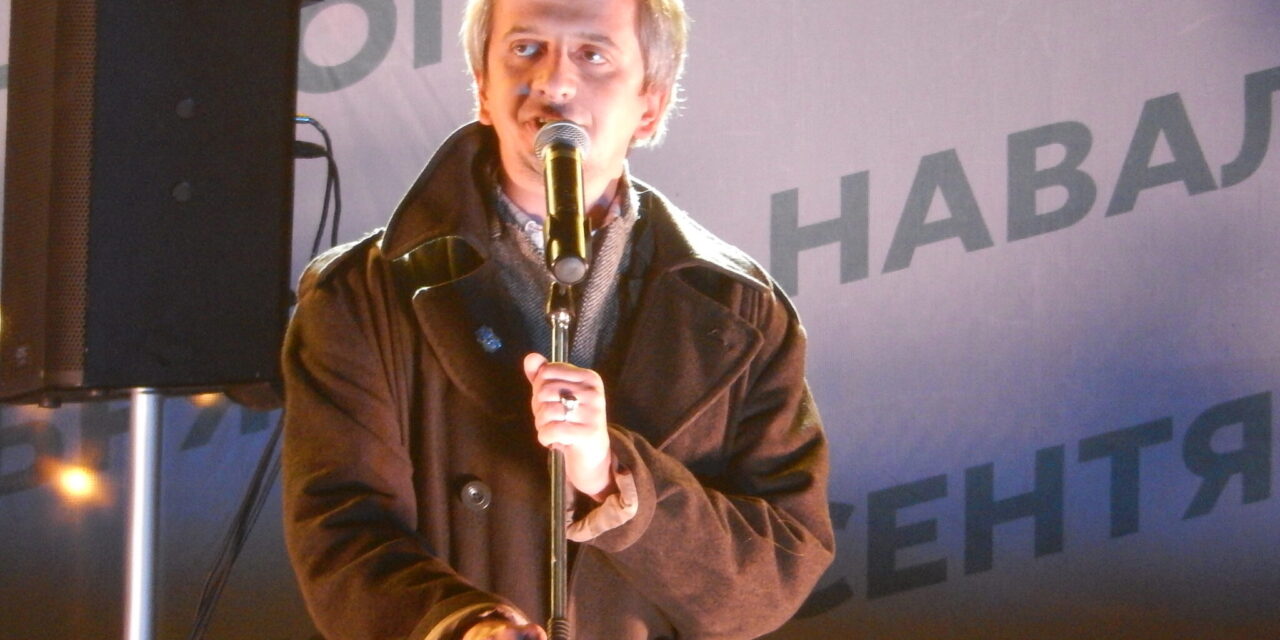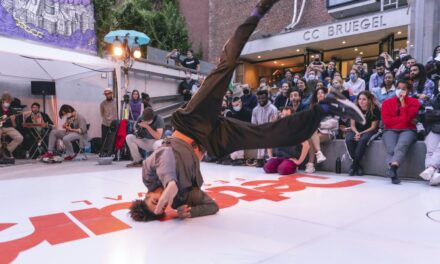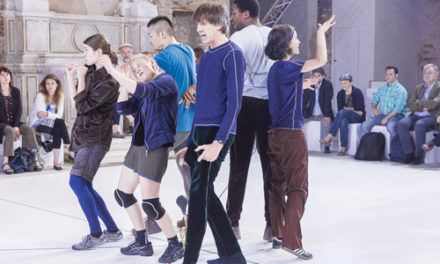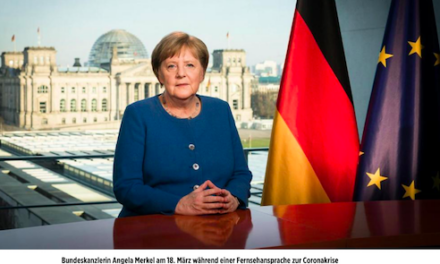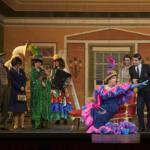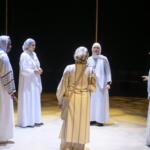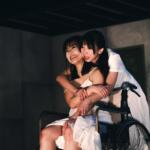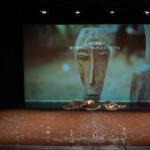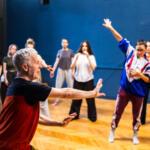Vladimir Putin’s decision to recognize two breakaway, Russian-backed republics in Ukraine on February 21, 2022, was followed within hours by the introduction of Russian military forces into these “republics” in order to—in the laughable, despicable words of Russian politician Valentina Matvienko—forestall Ukrainian “genocide” against the Russian-speaking population in eastern Ukraine.
Within twelve hours of that incursion, or invasion, or whatever history ends up calling it, one could see the air go out of the community to which I had belonged for thirty years. That’s not to say I hadn’t seen it coming.
From 1988 to 2018—less at the beginning and somewhat less toward the end—I moved in the thick of Russian theatre life. I was a critic, a historian, a producer, a translator, often acting as a mouthpiece or cheerleader for Russian theatre and culture to the world. I took that responsibility seriously. As a child of the Cold War, I believed I was in a position to help forge a different kind of East-West dialogue, one that would employ the arts and human creativity in breaking down old barriers, suspicions, dislikes, prejudices, and even deep-set hatred.
I especially felt the value of, and need for, this new dialogue from time to time when I would be reminded that I, an American living in Moscow with a Russian wife, was very much the object of attention from the Russian security forces, first the KGB, later the FSB. I was on their radar from almost my first days in Russia, until my very last in 2018. At first, it seemed amusing and quaint, the world was changing after all, and these kinds of tactics—surveillance, interrogations, gentle threats, and veiled intimidations—seemed very much “yesterday” and on their way out.
But the years passed, and in 2000 Vladimir Putin, a former KGB officer, took over as Russia’s president. My wife and I felt a chill creep in. By 2012, when Putin rammed through a third presidential term despite growing protests, and then in 2014, when Russia did the utterly unthinkable and launched a war against its historical “sister-brother” Ukraine, the illusions of the early years were doused one by one.
The details are too numerous to itemize, but our worries were well-founded: statues glorifying Stalin began cropping up all over Russia, news channels that dared tell a story outside the official line were closed down, the opposition leader Boris Nemtsov was shot in the back virtually beneath Putin’s window in the Kremlin, journalists covering sensitive political stories were gunned down with alarming frequency.
In our field, my wife Oksana Mysina and I began feeling squeezed. She spoke at public demonstrations against the war in Ukraine and—surprise!—her film career, with some forty films and numerous national awards to her name, came to a sudden halt. In my position as a theatre reporter for the Moscow Times and other news outlets in the United States and the United Kingdom, I found myself writing increasingly about the politics of theatre, and about politics in theatre, rather than about the growth and development of the art form. I often felt as though my topic had been hijacked.
Meanwhile, we watched with horror as the authorities began targeting selected artists with heavy-handed criticism, or even criminal prosecutions. An important aspect of this was that the members of our professional community began breaking into opposing factions. The famed playwright and theatre manager Nikolai Kolyada, once an open supporter of oligarch and opposition presidential candidate Mikhail Prokhorov (owner of the Brooklyn Nets basketball team, 2010–19), made a breathtaking about-face in 2012 by accepting a large state donation to his theatre in Yekaterinburg and making a video statement in support of Putin’s presidential campaign.
Kolyada blithely explained his choice at the time by saying, “They allocated money to my theatre, I wasn’t going to oppose them.”
Numerous theatre artists jumped on the bandwagon in 2012 and 2014, first loudly supporting Putin’s reelection, later denouncing Ukraine as an aggressor state that needed to be subdued. I stood among a huge crowd of Muscovites supporting opposition leader Alexei Navalny’s run for Moscow mayor in 2013 when the up-and-coming director Konstantin Bogomolov took the stage to declare his support for Navalny. It was an easy choice, Bogomolov said, because he was concerned about his child’s future. A few years later, the director switched his allegiance to Putin and—coincidentally or not—was named to run the historical and prestigious Malaya Bronnaya Theatre in Moscow. Presumably, his child’s future was now secured.
The Kirill Serebrennikov case attracted international attention from 2017 to 2020 as the renowned director was detained and held under house arrest while the prosecutor slowly and clumsily attempted to prove that the director and some of his associates had embezzled money from the state. The court simultaneously reached a guilty verdict and gave up the fight, releasing Serebrennikov and the other individuals on suspended sentences.
The case was painful, confusing, and just plain weird to watch from up close.
Serebrennikov courted the favor of Vladislav Surkov, one of Putin’s closest and most controversial advisers, for several years from 2013 to 2020. At one point early on, the director almost bragged about having coffee with Surkov every morning, and he eventually staged a dramatization of Surkov’s novel Almost Zero. As this was transpiring, Surkov was, among other questionable activities, creating and overseeing the so-called Ours (Nashi) youth organization, a blatantly nationalistic, often violent group that evoked comparisons to the Hitler-Jugend and could be called up at will to attack protesters or other Putin opponents.
Did Serebrennikov not see the conflict of interest, to say nothing of philosophy? Was he naive? Was he playing both ends off the center? I have no idea. But I know that not only do politicians and artists, especially in Russia, make for strange bedfellows, their unions can lead to disaster. Consider Yury Lyubimov and KGB head Yury Andropov in the 1960s and 1970s, or Vsevolod Meyerhold and Lev Trotsky in the 1920s.
The Serebrennikov trial, clearly a trumped-up affair with individuals inside the state system apparently seeking to even scores, opened deep rifts in the theatre community at large. Critics, writers, and theatre artists came to Serebrennikov’s defense for the most part, but there were significant exceptions. One of my oldest and most trusted friends for years, the critic Olga Galakhova, shocked everyone and made herself a pariah by bearing witness against Serebrennikov for the prosecution.
Meanwhile, one could witness the age-old turning of former young mavericks into cautious members of the status quo. Grigory Zaslavsky, a well-known, independent-minded critic, was named head of the Russian Institute of Theatre Arts (GITIS) in 2016. Later he would threaten students at his institution with expulsion if they were caught participating in demonstrations against the government.
The turning of such prominent figures as Kolyada, Bogomolov, and Zaslavsky from free spirits into vassals of the state was something I saw happening all around me. I could sense Russian culture curdling and souring. I came to Russia in the 1980s with a great love for Russian culture, literature, and art. This love grew exponentially as I watched a culture develop actively and in fascinating new ways throughout the 1990s.
What happened after that was the dousing of the fire, the slamming of the lid, even, one might say, the control shot in the back of the head.
The 2014 Maidan revolution in Kyiv, and Russia’s following proxy wars in Ukraine, put an unbearable strain on cultural spheres in Russia. Things began to break.
Maksym Kurochkin, one of the most admired Russian-language playwrights of the twenty-first century, broke with Russia and his Russian colleagues. He left Russia around 2017 and began transitioning to Ukrainian as his language of choice. He came back to Moscow for just one day for the funeral of his great friend and colleague Mikhail Ugarov in April 2018. At a late-afternoon memorial gathering at Teatr.doc, of which Ugarov and Kurochkin were founding colleagues, Maksym stood to stay goodbye to the crowd, he had a train to catch. Someone shouted cheerily, “Visit us again soon, Max!”
Maksym snapped almost angrily, “Give back Crimea, and I’ll return!”
To my amazement, when I later spoke with several colleagues who were there that day, none remembered Maksym’s statement. I’ve always wondered, did they really not hear it, or did they not want to hear it?

Maksym Kurochkin speaks at a Moscow rally against the war in Ukraine on April 13, 2014. Photo by John Freedman.
I can say this: Oksana was once asked to bring in theatre and film artists to speak at a large peace march in the center of Moscow. She called at least a dozen of our colleagues and invited them to appear. All but two refused. Those who did agree to speak were Kurochkin, and the Ukrainian-born film director Volodymyr Kharchenko-Kulikovsky.
Let me repeat: Not one of the Russians that Oksana asked to speak out against the war in Ukraine would do so. Were they all busy that day? Sick? Did they have relatives visiting? I don’t know. But the fact remains.
Literally hours before Putin announced his latest gambit against Ukraine on February 21, Kurochkin made a rare appearance on Facebook.
“I am disillusioned with the impotent culture that breeds such creatures” [as Putin], he wrote. “I do not forgive Moscow for the death of Ukrainians, or for our now-dead naivety. I don’t forgive myself either, for ‘I was not able not to be friends,’ and I chose the easy way out.”
These pithy phrases are shot through with anger. Typically, Maksym reserves some of the harshest criticism for himself, essentially for not breaking with Russian friends earlier, and for not holding his friends accountable for the deaths of Ukrainians that have occurred since 2014 (the official estimate is 14,500).

Volodymyr Kharchenko-Kulikovsky speaks at a Moscow rally against the war in Ukraine on April 13, 2014. John Freedman.
Natalya Vorozhbyt, another Ukrainian writer who once lived in Moscow and wrote in Russian but has since returned to Kyiv and transitioned to Ukrainian, made similar, if slightly less harsh, comments on Facebook on February 22. She wrote that she is trying to learn to hate, but is having a difficult time doing it. She was interested to see some “lively” responses to recent events among those living in Russia, but even there, all she really saw was “disillusionment and apathy.” Her comments evoked a spirited discussion among her former Moscow colleagues, many admitting, that, yes, we’re powerless and depressed.
One respondent to Vorozhbyt’s post admitted to despondency, distress, and disillusion, and asked, “What should I do, tell me.”
Vorozhbyt replied succinctly, “Struggle?”
None of the Russians responding to her post suggested that struggle in Russia is even thinkable, let alone possible.
Oksana Mysina and I left Russia in late 2018. I got tired of the apathy, careerism, and excuses I saw around me, to say nothing of the ever-snooping security forces. Oksana was disgusted at having watched her career run aground, while, often, colleagues berated her for “sticking her neck out” in ways “unbecoming of an actress.” We reached a point where we realized that, by staying in Moscow, we were not only condoning the creeping madness around us, which was bad enough, but also letting its poison seep into us. By the time we left, living in Moscow felt like having a nail driven into your skull at all hours of the day. It was unbearable.
These are things we can sacrifice when we must: friendships, partnerships, life goals, careers, dreams, love, even the greater part of our past.
I lost my love for Russian culture. By 2018, I saw little that was deserving of love. The power and courage of the Tolstoys, Dostoevskys, Chekhovs, Stanislavskys, and many, many more who had once inspired me, were now nowhere to be found. As I watched so many around me curl up and go glassy-eyed as they made excuses—or worse, jumped on the state juggernaut—I realized my love for Russian culture had evaporated.
Interestingly, chance handed me, now a resident of Greece, an opportunity to rekindle my love for things Russian. It came by way of Belarus and the playwright Andrei Kureichik, who sent me Insulted. Belarus, his play about the Belarus revolution of 2020, and asked whether I wanted to translate it. That innocent question unexpectedly led to my joining Andrei in curating a huge international project involving some 225 events at 110 theatres in thirty countries and twenty-two languages.
If you think this has nothing to do with everything I have been saying up to now, think again. Of all the participants of this huge project about a nation struggling to free itself of a corrupt dictator, the only Russian entry was a film made by Oksana Mysina with several brave, committed Russian actors. To this day, not a single one of my former Russian colleagues has reached out to inquire about the project or the play.
It seems a fitting coda to the last decade or so during which I watched Russian culture go quiet and then go silent.
Now we have war, an open war between Ukrainians and Russians, virtually all of whom are relatives in varying degrees. It’s been one hundred years since the last time Russia inflicted so much damage upon itself. It has not been pretty to watch this come about.
This post was written by the author in their personal capacity.The opinions expressed in this article are the author’s own and do not reflect the view of The Theatre Times, their staff or collaborators.
This post was written by John Freedman.
The views expressed here belong to the author and do not necessarily reflect our views and opinions.

